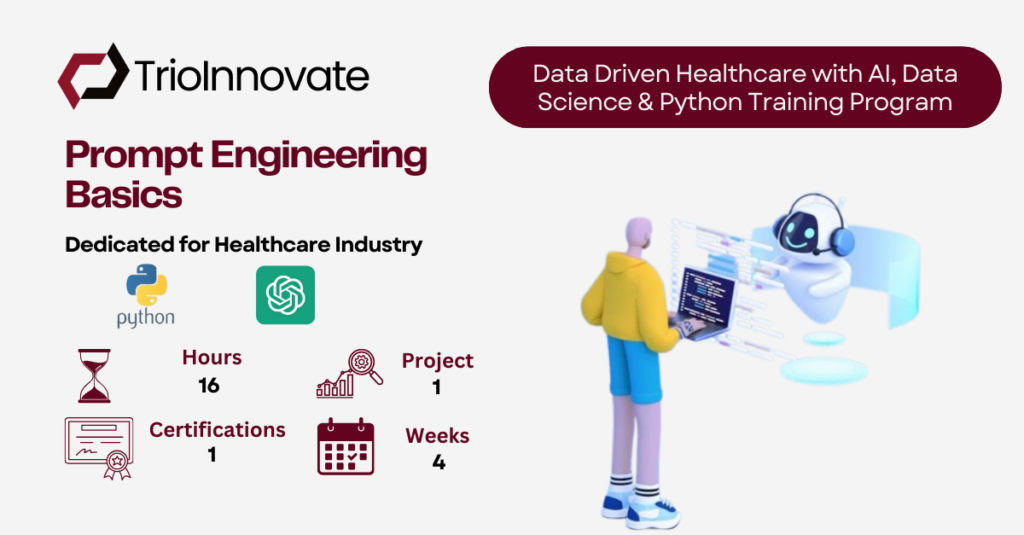Prompt Engineering Basics
This course introduces the fundamentals of prompt engineering, a critical skill for optimizing interactions with AI models like ChatGPT and other LLMs. Participants will learn techniques to craft effective prompts, structure queries for desired outputs, and fine-tune responses using contextual cues. The course covers best practices, ethical considerations, and practical applications across industries. By the end, students will be equipped to leverage AI more effectively for various tasks, including automation and content generation.
Key Skills
- Supervised Learning Fundamentals (Classification & Regression)
- Python for Machine Learning (Pandas, NumPy, Scikit-learn)
- Key ML Algorithms (Linear Regression, Decision Trees, SVM, k-NN)
- Model Evaluation & Metrics (Accuracy, Precision, Recall, F1-Score)
- Data Preprocessing & Feature Engineering
- Hyperparameter Tuning & Model Optimization
Course Outline
Prompt Engineering for Software Developers
Understanding how AI models like GPT and others respond to prompts
Lessons Objective
- Understanding Supervised Learning (Classification & Regression)
- Model Training & Evaluation
- Overfitting & Underfitting
Crafting effective prompts for getting the best results from AI models
Lessons Objective
- Working with Scikit-learn
- Data Handling with Pandas & NumPy
- Data Visualization using Matplotlib & Seaborn
Use of natural language processing (NLP) for software development
Lessons Objective
- Linear Regression
- Decision Trees
- Support Vector Machines (SVM)
- k-Nearest Neighbors (k-NN)
- Logistic Regression
Leveraging AI in software development processes and applications
Lessons Objective
- Performance Metrics (Accuracy, Precision, Recall, F1-Score)
- Train-Test Split & Cross-Validation
- Hyperparameter Tuning
- Feature Selection & Engineering
Projects in this course
In this project, you will apply supervised machine learning techniques to predict customer churn for a telecom company. Using a real-world dataset, you will:
- Preprocess the data (handling missing values, encoding categorical features)
- Train and evaluate models like Logistic Regression, Decision Trees, and k-NN
- Compare model performance using metrics like accuracy, precision, recall, and F1-score
- Optimize models through hyperparameter tuning
- Visualize insights with Matplotlib & Seaborn
By completing this project, you will gain hands-on experience in classification problems, model evaluation, and real-world data handling.

Course Duration:
10 Hours
Earned Skills:
Python, Problem Solving, Supervised Learning Algorithms
Earn Certification:
Earned a valuable Prompt Engineering Basics certificate to boost your resume


